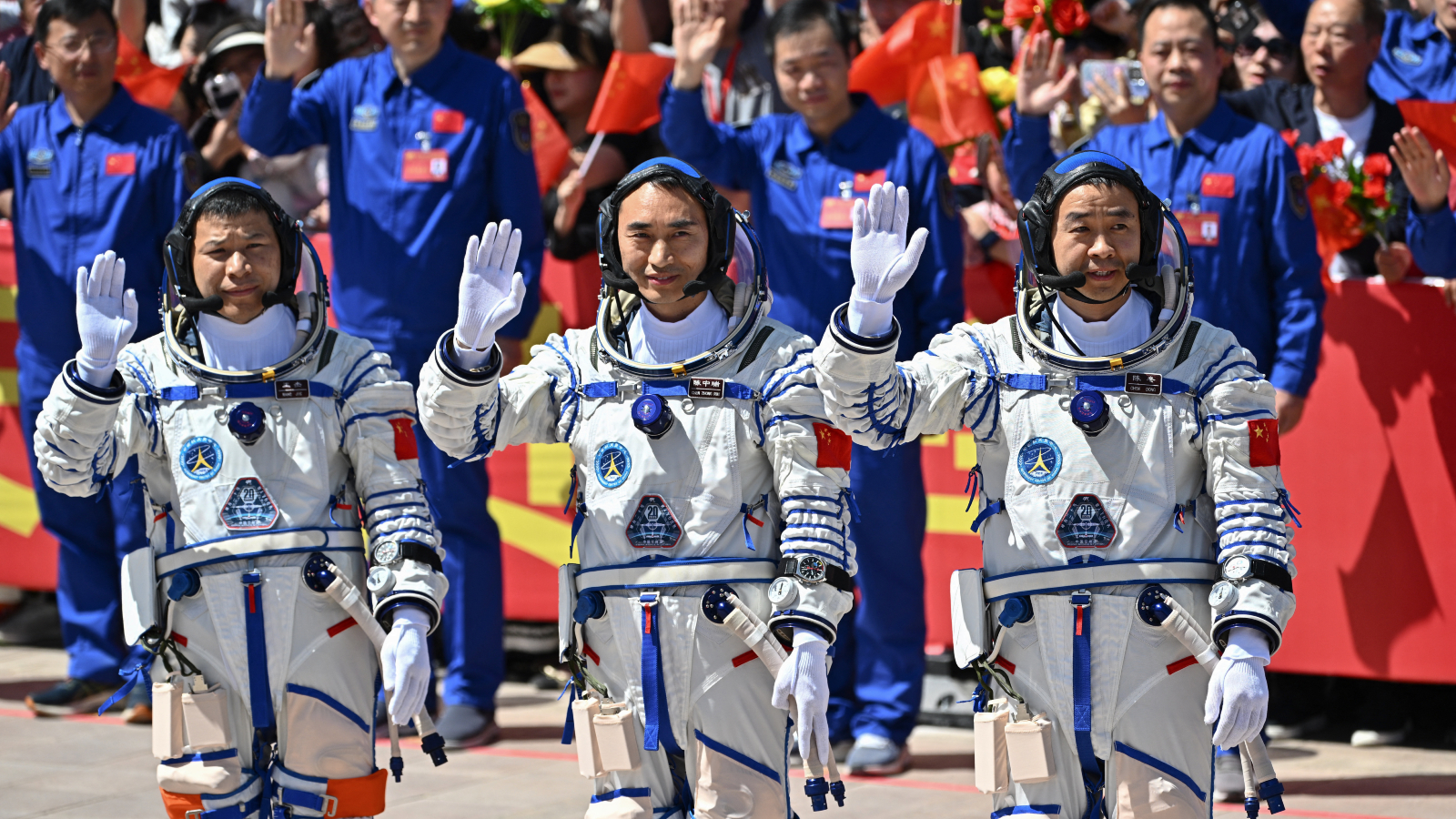Could a Surrogate Mother Deliver a Neanderthal Baby?

Get the world’s most fascinating discoveries delivered straight to your inbox.
You are now subscribed
Your newsletter sign-up was successful
Want to add more newsletters?
Join the club
Get full access to premium articles, exclusive features and a growing list of member rewards.
In a controversial interview that has ignited commentary across the world, a respected Harvard professor of genetics has suggested an "extremely adventurous female human" might someday serve as surrogate mother for a cloned Neanderthal baby.
Besides saying that the cloning of a live Neanderthal baby would be possible in our lifetime, George Church told Der Spiegel magazine that using stem cells to create a Neanderthal could have significant benefits to society. "The first thing you have to do is to sequence the Neanderthal genome, and that has actually been done," Church said.
"The next step would be to chop this genome up into, say, 10,000 chunks and then ... assemble all the chunks in a human stem cell, which would enable you to finally create a Neanderthal clone," Church told Der Spiegel.
Scientists completed the first sequence of the Neanderthal genome in 2010, finding genetic evidence suggesting ancestors of modern humans successfully interbred with Neanderthals, at least occasionally. More recent research has suggested Neanderthal DNA makes up 1 percent to 4 percent of the genomes of modern Eurasians. [The 10 Biggest Mysteries of the First Humans]
The benefits, according to Church, include an increase in genetic diversity. "The one thing that is bad for society is low diversity," Church said. "If you become a monoculture, you are at great risk of perishing. Therefore the recreation of Neanderthals would be mainly a question of societal risk avoidance."
In his book "Regenesis: How Synthetic Biology Will Reinvent Nature and Ourselves" (Basic Books, 2012), Church writes, "If society becomes comfortable with cloning and sees value in true human diversity, then the whole Neanderthal creature itself could be cloned by a surrogate mother chimp — or by an extremely adventurous female human."
Church said in another interview that he isn't advocating for births of Neanderthal babies from human surrogate moms anytime soon, but that people should start discussing the idea today so we're prepared for the future. Even so, other scientists say the idea is not only tangled with ethical issues, but is scientifically impossible for the foreseeable future.
Get the world’s most fascinating discoveries delivered straight to your inbox.
The ethics of human cloning
Not everyone, however, shares Church's interest in cloned Neanderthals, in light of the ethical issues involved.
"I don't think it's fair to put people ... into a circumstance where they are going to be mocked and possibly feared," bioethicist Bernard E. Rollin of Colorado State University in Fort Collins told the British newspaper The Independent.
It's also possible a Neanderthal baby would lack immunity to contemporary infectious diseases, and therefore might not survive, the Independent reports. Neanderthals, our closest known genetic relatives, died off some 30,000 years ago. Recent research, however, has suggested Neanderthals and other extinct humans such as the Denisovans might have endowed some humans with robust immune systems.
"Setting aside the ethical issues behind creating the lone survivor of an extinct human species, doomed to be a freak under the microscope of celebrity … I have to question Dr. Church's contention that it would really be that easy to clone a Neanderthal," Alex Knapp said in Forbes. [The 9 Freakiest Medical Conditions]
"Other mammals have been cloned. But at a cost — clones often experience a host of health problems," Knapp said. "For example, the first cloned sheep, Dolly, was one of 29 cloned embryos. He was the only one to survive."
Any surrogate mothers chosen to give birth to a Neanderthal clone might also suffer, Knapp said. "The reality is that success would require dozens of women — many of whom would almost certainly go through the trauma of miscarriage and stillbirths that appear to be inevitable when it comes to cloning.
"The ethical implications of just this simple aspect of the process are pretty damning," Knapp told Forbes.
Were Church's comments misinterpreted?
Church's statements in the Der Spiegel interview have been wildly distorted, according to some observers. "There's always a danger in taking one little comment and blowing it out of proportion," John Hawks, associate professor of biological anthropology at the University of Wisconsin–Madison, told LiveScience.
"He's really talking about science fiction," Hawks said of Church's comments, adding that with current technology, the cloning of any long-extinct species is "completely impossible."
"We are a long way from taking DNA information and making a living cell from it," Hawks said. And while the cloning and rebirth of extinct animals and humans sounds fascinating, it's really not a scientific priority. "It seems to capture people's imagination, but it's not on anyone's agenda," Hawks said.
"We can do a lot better science with this than cloning and bringing extinct species back to life," Hawks said. "If we could clone Neanderthals, we could address every genetic disorder humans have," Hawks said, referring to the technology and advancements needed to achieve both of these feats.
Church himself has distanced himself from the media frenzy surrounding his Neanderthal commentary. "The real story here is how these stories have percolated and changed in different ways," Church told the Boston Herald. "I'm sure we'll get it sorted out eventually."
"I'm certainly not advocating it," Church said. "I'm saying, if it is technically possible someday, we need to start talking about it today."
Follow LiveScience on Twitter @livescience. We're also on Facebook & Google+.

 Live Science Plus
Live Science Plus










